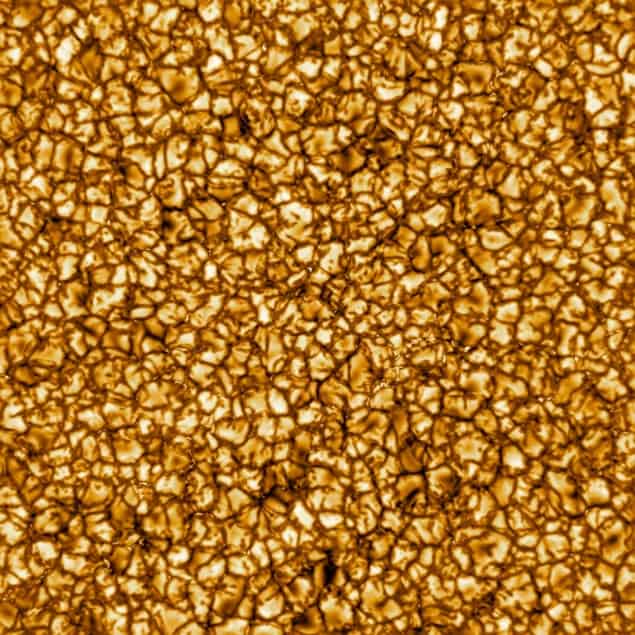
An image of the Sun with the highest spatial resolution ever has been taken by the Daniel K Inouye Solar Telescope. Shown above is the full field image, which is displayed in false colour and shows infrared light at 789 nm wavelength.
The image covers an area of 36,500×36,500 km2 on the Sun’s surface – which is about 2.6 times the surface area of Earth. Despite the huge area covered by the image, features as small as 30 km can be resolved.
The granular structures in the image are convection cells, which are each about the size of the US state of Texas. Hot plasma from inside the Sun bubbles up in the bright centres of the cells. It then cools by radiating its heat and falls back into the Sun in the gaps between the cells – which are dark because they are cooler.
The occasional bright specks that are seen in the gaps mark-out magnetic field lines, which are thought to channel energy from the surface of the Sun to the corona. The presence of these specks could explain why the corona is much hotter than the surface of the Sun.
Located on Haleakala volcano in Hawaii, the Inouye Solar Telescope has a mirror that measures 4 m across, making it the largest solar telescope ever. It acquired its first images in late 2019 and will be operate for at least 44 years to capture four complete cycles of solar activity.
https://news.google.com/__i/rss/rd/articles/CBMiXWh0dHBzOi8vcGh5c2ljc3dvcmxkLmNvbS9hL2NvbnZlY3Rpb24tY2VsbHMtdGhlLXNpemUtb2YtdGV4YXMtZGF6emxlLXdpdGgtY2xhcml0eS1vbi10aGUtc3VuL9IBAA?oc=5
2020-01-30 13:07:19Z
52780581500879
Tidak ada komentar:
Posting Komentar